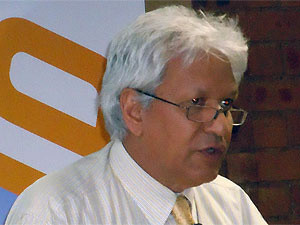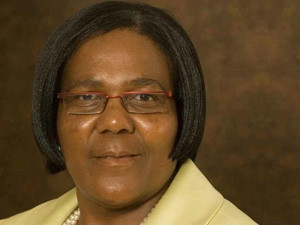
Despite the state's claims it has caringly cut the cost of using Gauteng's freeways, the standard tariff for e-tolling will be implemented at the same rate as the price proposed two years ago.
The latest tariffs, which will come into effect on 3 December when the controversial system goes live, were published earlier this week. The publication came a day before transport minister Dipuo Peters announced the implementation date and about six weeks after rates were last gazetted for comment.
Addressing the media, Peters said "government cares for its people and has listened to the concerns raised by the public".
Peters noted tariffs have been reduced and government has moved from the initial 66c a kilometre to the current 30c for those who have bought e-tags for their light motor vehicles. She added government concluded the latest tariffs, after a month-long public consultation process.
South African National Roads Agency (Sanral) CEO Nazir Alli said the October gazette garnered 1 080 comments, and the rates are an indication government has "clearly been listening". He added the cap has been dropped to R450 a month, and 83% of people will pay less than R100 a month.
However, the standard tariff has been unchanged since August 2011, while the e-tag cost was last decreased in November 2012.
Misleading claims
Howard Dembovsky, chairman of Justice Project South Africa, says the latest gazette mirrors the previous one in terms of the charges. He adds the cap of R450 a month for e-tag users is the same as in the October tariffs, which is when the amount was dropped from R500. "So, what exactly have they listened to? Nothing."
Wayne Duvenage, chairman of the Opposition to Urban Tolling Alliance, adds government keeps going back to two years ago, which is the only time the tariffs have actually dropped. He says its claims are "misleading" and a farce.
Peters also urged motorists to register with Sanral as those who fail to create an account will be charged "almost double the cost per kilometre". So far, Sanral claims to have around 705 000 e-tags, while there are four million registered vehicles in Gauteng, of which it expects 2.5 million to use the freeways.

However, Dembovsky points out this claim is inaccurate as alternate users will pay as much as 5.8 times what those with an e-tag will be charged.
Alternate users are motorists who have not signed up on Sanral's Web site, and do not pay their bills within the seven day grace period. This classification also applies to those who have e-tags, but whose account has run out of money.
Duvenage notes the statement that unregistered users will pay almost double is confusing, as this only applies if people pay within the grace period. He argues this is an impossible situation due to delays in the postal system, and the fact that Sanral only mails statements monthly.
During the conference yesterday, Alli said systems were in place to handle e-toll offenders. A debt collection process, which includes invoicing, a seven-day grace period, reminders, summons and, finally, court proceedings.
Adding it up
The cost for each of the 45 gantries has been worked out based on the distance each represents, which is an average of 10km, says Sanral. It explains the distance between gantries, which is not exactly 10km, is then multiplied by the cost per kilometre.
Charges vary from gantry to gantry as they are not placed exactly 10km apart, Sanral adds.
Dembovsky does not understand how the state has arrived at a figure of 83% of motorists not paying more than R100 a month. He says this equates to driving under just one gantry a day.
When it comes to the cap, Dembovsky explains this applies per car, and households with more than one vehicle, or those people who commute alternating between a car and a motorbike, will pay multiples of the cap.
Previous reduction
Several attempts to obtain comment from the Department of Transport about the claims relating to rates were unsuccessful. However, acting Cabinet spokesperson Phumla Williams has said the rates were cut in August 2011, while e-tag costs were dropped last February by minister of finance, Pravin Gordhan.
During the 2012 budget speech, Gordhan said: "I am mindful that the introduction of tolling to finance the Gauteng Freeway Improvement Programme has caused considerable public reaction." He said National Treasury had listened to the public, and that R5.8 billion would be pumped into the project to trim the debt and offer a deeper discount.
"So when compared to the August 2011, these rates have been revised for the e-tag users," said Williams.
Government has previously been accused of lying over toll fees when, after the August 2011 figures were published, it stated the tariffs had been cut, but neglected to point out that the cost it was punting was for e-tag users.
* Additional reporting by Bonnie Tubbs.
Share